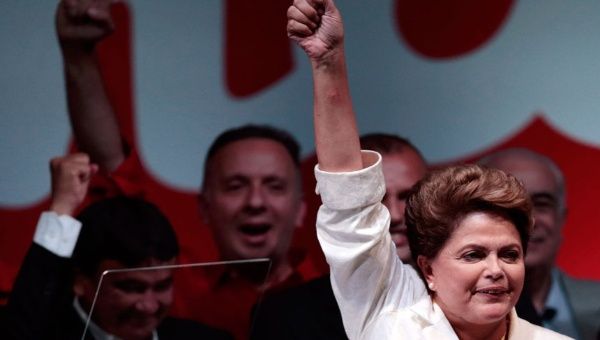
Brazil




April 16, 2016 -- Links International Journal of Socialist Renewal -- Over 700,000 Brazilians took to the streets on March 31 across dozens of cities in Brazil in defence of democracy. The demonstrations were called by the Popular Front of Brazil, of which the Landless Workers Movement (MST) is a key part. The demonstrations demanded an end to the impeachment proceedings against President Dilma Rousseff, which protestors say is equivalent to a coup.
Below, Links International Journal of Socialist Renewal is republishing two articles reflecting the views of the MST on the current political crisis in Brazil which have been translated by Friends of MST. The first is the MST's analysis of the origin of the political crisis and the role of the social movements and working class in this struggle. The second was written by MST leader João Pedro Stedile, and looks at how the crisis has been accompanied by rising rural violence, including the killing of two farm workers on Thursday April 7.
By Claudio Katz, introduction and translation by Richard Fidler
Introduced and translated by Richard Fidler, article original published in Spanish in La Llamarada July 14, 2013 -- Life on

On October 26 Brazilians re-elected Dilm


